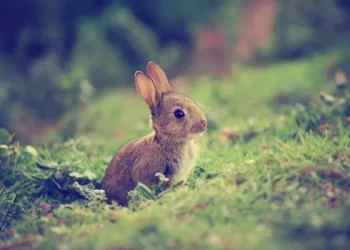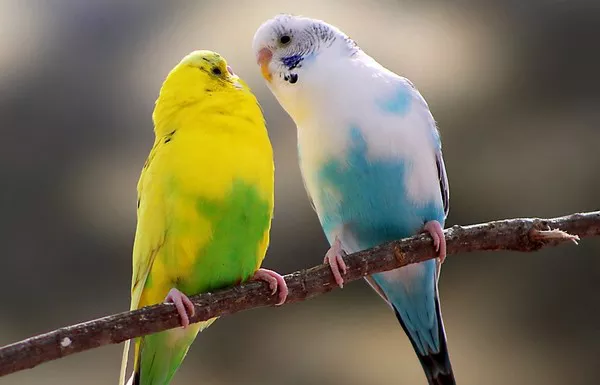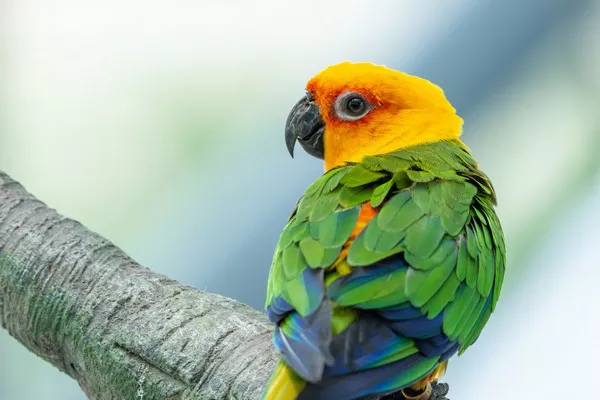Rabbits are adorable creatures, known for their floppy ears, twitchy noses, and delightful personalities. They hop around like furry little balls of joy, brightening up our lives with their antics. However, when it comes to their eating habits, many pet owners have questions. One question that frequently arises is: do rabbits eat rose bush leaves? The answer isn’t as simple as a yes or no, so let’s hop into the world of rabbits and explore their dietary preferences, including the delightful—yet thorny—rose bush!
The Curious Case of Rabbit Eating Habits
Rabbits are herbivores, which means their diet primarily consists of plant material. They have evolved to eat a variety of vegetation. Their natural diet includes grasses, herbs, flowers, and leafy greens. This variety provides them with the necessary nutrients and fiber to stay healthy.
But just because rabbits eat plants doesn’t mean they can munch on any and every type of foliage they find! As responsible pet owners, we need to know which plants are safe and which ones can be harmful. This is where the rose bush comes into play.
The Anatomy of a Rose Bush
Before we can answer the question about rabbits and rose bush leaves, let’s understand what a rose bush is. These beautiful plants are known for their stunning blooms and often grow in gardens as ornamental plants. They belong to the genus Rosa, which includes thousands of species and varieties. The leaves of rose bushes are typically dark green and have a jagged edge, while the flowers can come in various colors, such as red, pink, yellow, and white.
Rose bushes can also be thorny. The thorns are a natural defense mechanism against herbivores. However, rabbits are known for their keen ability to navigate their environment, and they can be quite resourceful when it comes to finding food.
Do Rabbits Actually Eat Rose Bush Leaves?
Now, let’s address the central question: do rabbits eat rose bush leaves? The short answer is yes, they can. However, the more nuanced answer is that while rabbits might nibble on rose bush leaves, it’s not necessarily their preferred snack.
Here are some factors to consider:
Taste and Preference: Rabbits are like us; they have individual tastes. Some might find the leaves of a rose bush tasty, while others might prefer dandelion greens or fresh hay. The leaves are not toxic to rabbits, but they may not find them as appealing compared to other options.
Nutritional Value: Rose bush leaves do not provide significant nutritional benefits for rabbits. They are low in fiber and nutrients compared to other leafy greens. A rabbit‘s diet should primarily consist of hay, fresh vegetables, and some fruits. Feeding them rose bush leaves as a mainstay wouldn’t be beneficial.
Thorns and Safety: While the leaves themselves are not harmful, the thorns on the rose bush can pose a risk. If a rabbit tries to nibble on the leaves near the thorns, it could injure itself. So, if you have a rose bush and a curious rabbit, it’s best to keep them separate for safety reasons.
Potential Chemicals: Many rose bushes are treated with pesticides or chemicals to protect them from pests and diseases. These substances can be harmful to rabbits if ingested. Therefore, even if a rabbit finds rose bush leaves appealing, it’s crucial to ensure that the plant hasn’t been treated with harmful chemicals.
The Ideal Rabbit Diet
To keep our fluffy companions healthy and happy, we need to focus on their ideal diet. A balanced diet for a rabbit includes:
Hay: This should make up the bulk of a rabbit’s diet. Timothy hay, meadow hay, and orchard grass are excellent choices. Hay is rich in fiber, which is essential for healthy digestion and preventing dental issues.
Fresh Vegetables: Leafy greens like romaine lettuce, kale, cilantro, and parsley are great additions to their diet. It’s essential to introduce new vegetables gradually to prevent digestive upset.
Fruits: Fruits can be given as treats in moderation. Apples, bananas, and berries are rabbit favorites, but they should be fed sparingly due to high sugar content.
Pellets: High-quality rabbit pellets can be included in their diet, but they should not be the primary food source. Look for pellets that are high in fiber and low in protein and calcium.
Water: Fresh, clean water should always be available. Hydration is crucial for a rabbit’s health.
The Health Benefits of a Proper Diet
A proper diet contributes to a rabbit’s overall health. Here are some benefits of feeding rabbits a balanced diet:
Digestive Health: A high-fiber diet helps prevent gastrointestinal stasis, a potentially life-threatening condition in rabbits. Fiber encourages healthy gut motility and prevents blockages.
Dental Health: Chewing on hay helps wear down a rabbit’s continuously growing teeth. If their teeth become overgrown, it can lead to pain and difficulty eating.
See Also: Can Rabbits Be Left Alone?
Healthy Weight: A balanced diet can help maintain a rabbit’s weight. Overweight rabbits are at risk for several health issues, including heart disease and diabetes.
Improved Mood: A healthy diet can lead to a happier rabbit. A well-fed rabbit is more likely to be active and engaged, leading to a more fulfilling life for both the rabbit and the owner.
Rabbit Behavior and Foraging
Rabbits are natural foragers. In the wild, they spend most of their day searching for food, grazing on grasses, and nibbling on various plants. This behavior is not just about feeding; it’s also about mental stimulation and exercise.
When rabbits are kept as pets, it’s essential to mimic this foraging behavior to keep them mentally stimulated. Providing various safe plants, toys, and tunnels can encourage natural foraging instincts.
What If My Rabbit Nibbles on Rose Bush Leaves?
If you find your rabbit munching on your rose bush leaves, don’t panic. While it’s not the ideal snack for them, it’s generally safe as long as the bush hasn’t been treated with chemicals. Here’s what you can do:
Monitor Their Behavior: Keep an eye on your rabbit after they’ve eaten the leaves. Look for any signs of distress, such as lethargy, diarrhea, or refusal to eat. If any of these symptoms occur, consult your veterinarian.
Provide Alternatives: If your rabbit enjoys the taste of rose bush leaves, try offering them other safe leafy greens or herbs. Fresh parsley, basil, and cilantro can be delightful alternatives.
Prevent Access: To protect your rose bushes and your rabbit, consider creating a barrier or fencing around the plants. This way, your bunny can enjoy their outdoor space without munching on your precious roses.
Educate Yourself: Familiarize yourself with plants that are safe and unsafe for rabbits. Knowledge is power when it comes to keeping your pet healthy.
Signs of a Healthy Rabbit
Keeping an eye on your rabbit’s overall health is crucial. Here are some signs that indicate a healthy rabbit:
Active and Engaged: A healthy rabbit is often active, hopping around, and curious about their environment.
Good Appetite: Rabbits that eat well and have a balanced diet are less likely to develop health issues.
Normal Droppings: Rabbit droppings should be round and firm. A change in their droppings can indicate a problem.
Clean Fur: A healthy rabbit will groom itself regularly, resulting in clean fur.
Social Interaction: Healthy rabbits enjoy interacting with their owners and other rabbits.
Conclusion
In conclusion, while rabbits can eat rose bush leaves, it’s not their go-to snack. As with any plant, moderation is key, and it’s essential to ensure that their primary diet consists of hay, vegetables, and water.
Remember, a well-fed rabbit is a happy rabbit, and understanding their eating habits is vital for their well-being. If your furry friend shows an interest in rose bush leaves, provide safe alternatives and monitor their health.
As we continue to learn about our pets and their dietary needs, let’s ensure we keep our rose bushes thriving and our rabbits hopping happily in our gardens. After all, who can resist a cute rabbit nibbling away—just as long as it’s munching on the right snacks?
Related Topics:

























